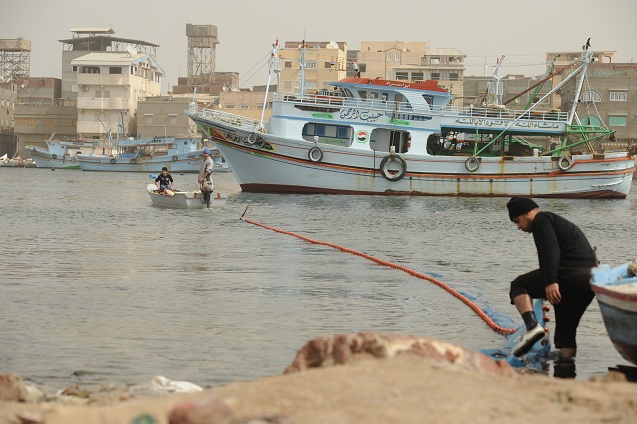CAIRO: Human rights violations, deteriorating economic conditions and immigration dilemmas are some of the thorny issues that flooded the Arabic Network for Human Rights Information’s (ANHRI) email everyday. This prompted the organization to launch a website, offering Egypt and the Arab world an opportunity to vent about their problems.
Nearly three years and three million visitors later, Humum.net (Grievances) remains an open forum for users to seek solutions to their problems or simply shed light on them.
Gamal Eid, head of ANHRI, said that the drive behind Humum was the large number of emails they have been receiving.
“It was hard to delete all these emails and complaints, so we would forward them to the appropriate organization. But a lot of those organizations were not very active online, so the idea came about to start a platform for those who need help and connect them with those who can provide it, Eid told Daily News Egypt.
The website receives online complaints from different countries on a variety of issues. Posts are divided by country and by issue. A sidebar is titled “Chronic Grievances, and tackles serious human rights issues such as those of women, Shias, Bahais, Christians and so on.
The user has the option to enter their personal information so they are contacted by the appropriate organization that can offer help.
However, not all countries are similar when it comes to helping its own.
“Countries like the United Arab Emirates, Syria and Algeria offer better responses to its people’s problems -both governmental and non-governmental organizations – while countries like Egypt and Lebanon are down on the list, Eid added.
In Egypt, however, individual responses are common. Nahdet Masr, an independent daily newspaper, dedicates an entire page on Tuesdays to helping people who need to be heard. Approximately half of their material is from Humum.
ANHRI is essentially involved with problems that fit within their field of work; such as freedom of speech. Other irrelevant issues are directed to their respective organization.
Egyptians problems generally revolve around tough economic times, violations that are bred from corruption and dreams of immigrating to the west, Eid said.
One example shows a young Egyptian man who pleaded with authorities to give him a flat in the Mubarak Youth Housing Project because he could not afford rising rent prices. Other posts include a handicapped man looking for work, and a widow seeking financial support for her three children after her husband was killed on the job, and never received compensation from his employers.
Other complaints are from victims of high profile incidents such as Duweiqa residents, who lost their homes to the rockslide last year. A complaint sent by a man claimed that the government letters with compensation checks bounced.
The website is looking to expand over the coming year, with new categories to be added, the website’s technical manager Mohamed Ragab told Daily News Egypt.
“We are studying the option of adding and adjusting sections on the website to make it easier for readers and writers to communicate, Ragab added.
The website will start receiving complaints from bloggers, journalists and average citizens whose freedom of expression is impeded.
ANHRI is working towards a more direct involvement in delivering complaints to the right organization through opening more channels with the specialized NGOs around the region.


